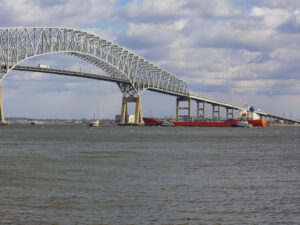On Dec. 3, the D.C. Department of Transportation (DDOT) announced the next phase of the district’s Dockless Vehicle Sharing Program. More specifically, it announced which companies will be allowed to continue to operate dockless bikes and scooters on the city’s roads – and which will be forced to stop.
In total, D.C. residents can expect to see 10,000 dockless scooters available for rent at the beginning of 2020. This reflects the rapid expansion of e-scooter use in both the D.C. and nationwide. In comparison, there were only 2,400 total dockless vehicles (bicycles and scooters) allowed on D.C. streets at the end of 2018. Furthermore, the approved companies will have the opportunity to apply to expand their fleets by up to double every six months. In other words, a company starting the year with 2,500 scooters could end that same year with 10,000, if approved for the maximum expansion.
Of the 13 dockless e-scooter operators that applied for 2020 permits, only four were approved. The four permitted businesses that will be operating e-scooters are Lyft, Skip , Spin and Jump. In 2019, eight companies got the green light to have vehicles on D.C. roads. Bird, Lime, Razor and Bolt, which currently have thousands of dockless scooters throughout the city, will have to withdraw their vehicles at the end of the year. City officials have said that fewer approved operators mean that they will be able to provide better dockless vehicle oversight and respond more quickly to potential safety hazards.
E-Scooters Come with Safety Concerns
Multiple e-scooter safety concerns have arisen since their arrival to D.C., which I discussed in a blog post earlier this year. More specifically, there have been an alarming number of traffic accidents resulting in e-scooter users getting injured. Head injuries are common, largely due to the fact that the vast majority of e-scooter riders don’t wear helmets. There have also been incidents where pedestrians were struck and injured by e-scooter riders.
In October, a search of D.C. Fire and Emergency Medical Services records revealed more than 400 calls have been made about scooters since the dockless program began in 2018. Of those calls, “335 people were hospitalized with injuries, 73 were trauma patients, 22 had head injuries and 16 were classified as potentially life-threatening.”
A bill introduced by Ward 3 Council member Mary Cheh in November 2019 plans to address safety concerns by regulating the e-scooter industry. Cheh, who is also the chair of the Committee on Transportation and the Environment, said in a hearing that “many scooter users weave in and out of pedestrians on the sidewalk at high speeds, weave in and out of traffic on the road, do not follow important safety rules, ride while they are inebriated and routinely discard scooters that block pedestrians’ walkways, private driveways, and handicapped-accesible ramps.” The amendment would set a scooter speed limit of 15 mph on roads and 6 mph on sidewalks.
If you or a loved one was injured in an accident involving a e-scooter, please call the experienced personal injury attorneys at Paulson & Nace, PLLC in Washington, D.C. today at (202) 930-0292 or through our online contact form to discuss your legal options.
@thumbnail.jpg)
Both an Emory School of Law graduate and MBA graduate of Goizueta Business School at Emory, Chris Nace focuses his practice on areas of medical malpractice, drug and product liability, motor vehicle accidents, wrongful death, employment discrimination and other negligence and personal injury matters.










Comments for this article are closed.